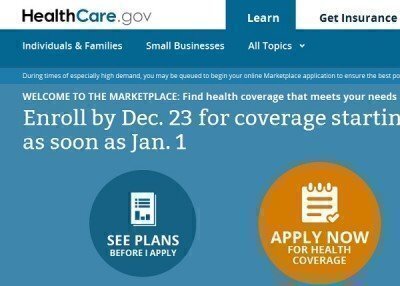Lyle Denniston, Constitution Daily's Supreme Court correspondent, looks at the latest developments in the court battle over Obamacare and birth-control access for women who work for religious non-profits. The Obama administration, apparently ready to pass on to the new government of President-elect Donald Trump the deep controversy over birth-control access for women who work for religious non-profits, has now asked several appeals courts to keep pending cases on hold until February 28 – almost six weeks after Trump is sworn in.
The Obama administration, apparently ready to pass on to the new government of President-elect Donald Trump the deep controversy over birth-control access for women who work for religious non-profits, has now asked several appeals courts to keep pending cases on hold until February 28 – almost six weeks after Trump is sworn in.
Several of the non-profits have gone along with that suggestion, but a Christian college in Missouri is balking, saying it wants something done sooner to resolve the controversy.
This is the health care dispute that the Supreme Court confronted at its last term, in the latest fight there over the Affordable Care Act (“Obamacare”). But the Court wound up settling nothing; instead, it told the two sides to talk over a possible compromise that would insulate objecting religious institutions from the contraceptive mandate even while assuring their women workers that they could get the services free.
Although the two sides did get together, at least once, the only public activity over the past few months has been the filing of status reports by both sides in the eight federal appeals courts where specific cases are pending in the wake of the Supreme Court’s May 16 order for lawyers to get together.
While the federal government’s filings within the past few weeks have differed in some detail, on Wednesday the Obama administration asked three of those appeals courts to take no action until February 28. Those requests did not mention the change in government that takes place on inauguration day, January 20, but it was obvious that the administration’s lawyers were signaling that the agencies would not have a workable compromise proposal ready to propose in their final weeks under current leadership.
The reason given in each of those government filings was that federal officials were still mulling over some 54,000 replies they got in response to a request they put out in July for comments on how to protect the religious views of non-profit hospitals, colleges and charities and still make contraceptives available to their workers and students.
In one appeals court, the U.S. Court of Appeals for the Fifth Circuit, four religious colleges and two groups of Roman Catholic charities filed a request to keep their cases on hold until February 21, a week earlier than the government proposal. Those groups’ request specifically mentioned the coming change in the government, suggesting that a postponement “will allow the newly-inaugurated President and new Administration an opportunity to take a fresh look at this litigation and consider potential resolutions acceptable to all sides.”
While the status reports have mostly reflected a strong degree of harmony in continuing to pursue a way out of the ongoing controversy, one contrary development occurred in a status report filed on Thursday in the U.S. Court of Appeals for the Eighth Circuit, by lawyers for Heartland Christian College, an institution in Newark, Mo., and its corporate sponsor, CNS International Ministries, Inc. (Their case is one in which government lawyers on Wednesday had sought a delay until February 28.)
The college’s filing brought back to the surface one of the underlying uncertainties about what the Supreme Court intended in its order calling for a negotiated compromise. The Justices’ order did not mention non-profit groups that insure their own health coverage, rather than contracting it out to an insurer, It is not clear that the compromise would even apply to those entities, because there may be no way to separate them from a role in providing contraceptive coverage for their women employees, and thus their religious objections could not be avoided.
The Justices’ order seemed to be focusing on religious entities that have outside insurers for their health coverage, through whom the government could arrange to provide contraceptive services and methods.
The lawyers for Heartland College argued in their filing Wednesday that “the government has never demonstrated that it has the authority” to direct an objecting employer’s plan administrator to provide access to drugs that could be used to bring about abortion without the religious entity’s consent or approval.
So, the college’s lawyers asked the Circuit Court to set a firm date for the government to come up with a way to accommodate the self-insured religious entities. As an alternative, the filing suggested that the government drop its effort to enforce the birth-control mandate in this specific case, or agree to have the Circuit Court go ahead and rule on the legality of the birth-control mandate itself.
The document, though, did go on to note that there will be a change in the government, and said that “may significantly affect some or all of the contraceptive mandate cases.” Existing regulations to implement the mandate could be changed or, at least, the government could change its stance in the pending cases, the filing said.
But, it added, those potential charges “are uncertain,” so the Circuit Court “at a minimum” should require the government by a specific date “to propose a workable accommodation” of the self-insured entities’ concerns.
It is uncertain when, or if, the government will respond to the college’s new demand. It may simply stick with its proposal for inaction until February 28.
Legendary journalist Lyle Denniston is Constitution Daily’s Supreme Court correspondent. Denniston has written for us as a contributor since June 2011 and he has covered the Supreme Court since 1958. His work also appears on lyldenlawnews.com.







